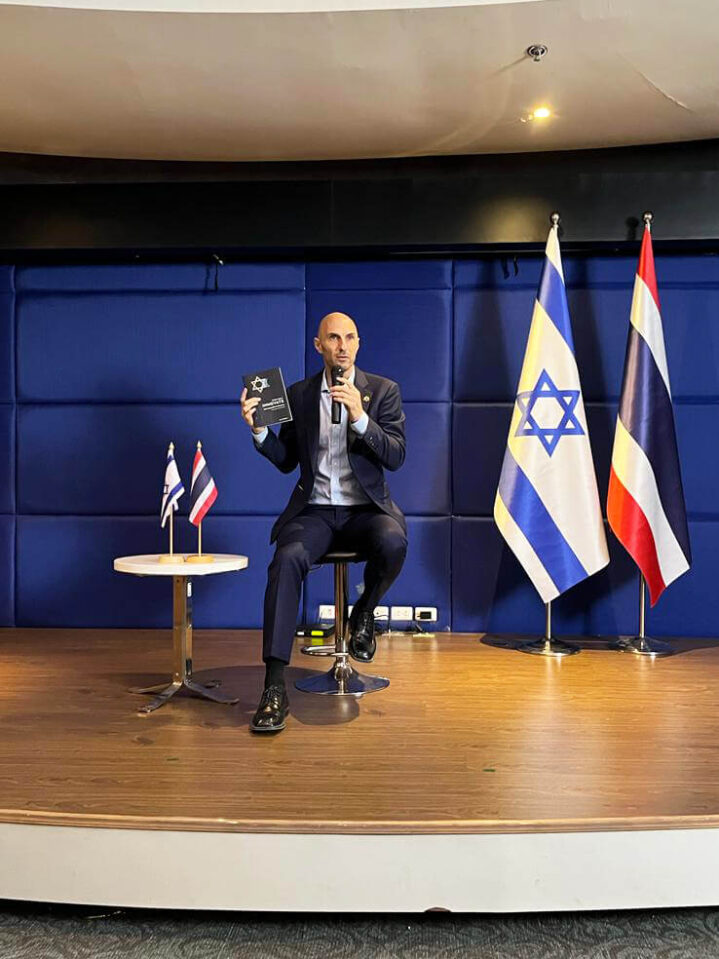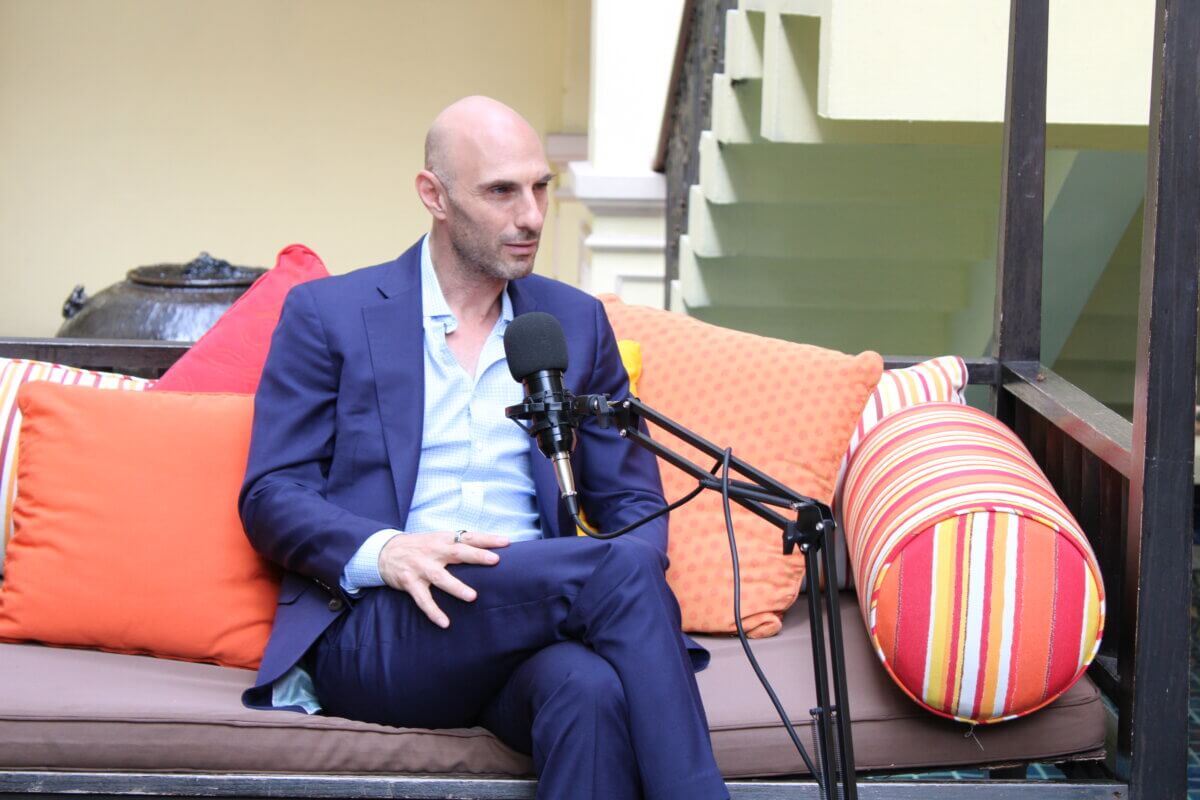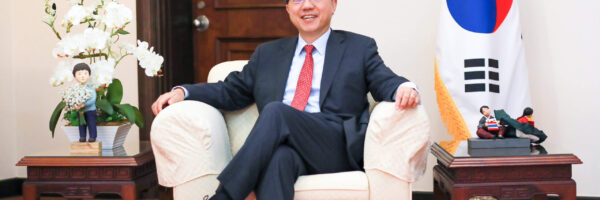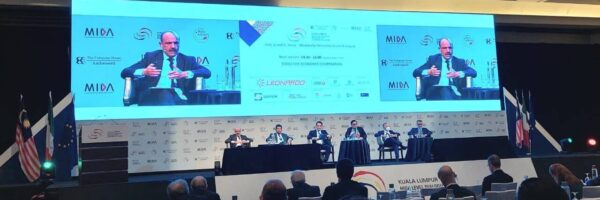
Thou Shalt Innovate
Israel is world renowned as being the “start-up nation” and is the world leader for number of start-ups per capita – with 2,000 startups founded in the past decade, another 3,000 small and medium-sized startup and high-tech companies.

The book “Thou Shalt Innovate” by Avi Jorisch, profiles wondrous Israeli innovations that are collectively changing the lives of billions of people around the world and explores why Israeli innovators of all faiths feel compelled to make the world better. This is the story of how Israelis are helping to feed the hungry, cure the sick, protect the defenseless, and make the desert bloom. Israel is playing a disproportionate role in helping solve some of the world’s biggest challenges by tapping into the nation’s soul: the spirit of tikkun olam – the Jewish concept of repairing the world. The Israeli author recently visited Bangkok and Expat Life was fortunate to sit down with the seasoned entrepreneur to learn about Israel as a hub of innovation and the aspirations in writing this book.

How innovative do you see Israel as a nation?
Israel has achieved remarkable, exponential growth over the last 72 years, and that is a testament to the country’s grit, determination and chutzpah. Entire industries and countries are looking to Israel to help them solve their challenges: Israel has over 300 research and development centers owned by multinational companies in various fields, including Apple, Amazon, Facebook, Google, Intel and Microsoft. China, India and the United States now look to Israel to help solve their emerging water needs. Universities around the world are forging strong partnerships and creating joint innovation centres with Israel’s best and brightest institutions so as to work together in fields including engineering, biology, physics and chemistry. The country is a beacon of hope, and its citizens are ready to help solve local and global challenges.
Israel does not have a monopoly on good ideas or proper execution. All countries, including Thailand, would benefit from tapping into their own cultures in order to apply their own lessons to the industries and professions they have excelled in for centuries.
Why do you think Israel is the hub of innovation?
My book reveals the underlying secrets of how Israel has managed to produce more startups than Canada, India, Japan, Korea, and the United Kingdom combined. And the reasons why Israel has the largest number of companies listed on the NASDAQ exchange, with the exception of the US and China. Despite the fact that 60% of Israel is a desert, it is the world’s only self-declared water superpower. Israel’s innovative success stems from a number of factors, including benefiting from a religious culture that encourages questioning and challenging authority, and defying the obvious. The country embraces its ethnic, political and religious diversity, and has a culture that strongly values secular institutions. This concept of tikkun olam (a Hebrew term that means “repair of the world”) has helped to shape the pursuit of a greater purpose in Jewish culture.
What do you hope to achieve with the writing of the book “Thou Shall Innovate”?
I was born into a family of Holocaust survivors and raised primarily in New York City. But I also lived in Israel for long stretches of my childhood, through my teenage years and into adulthood, because of my family’s cultural, historical, and religious ties there. My interest in Israeli technology was kindled during the summer of 2014, when my family and I lived through Operation Protective Edge, in large part going in and out of bomb shelters. My family, like the rest of Israel, found comfort in the Iron Dome. I marvelled at this invention. It kept Israel from descending into the chaos and carnage that was engulfing the rest of the Middle East.
Like many others, I was aware of Israel’s incredible record of innovation. But what I hadn’t realised was the extent to which Israel’s innovative spirit was having an impact far beyond Israel, addressing some of the world’s most pressing social problems. It quickly became clear to me that Israel was much more than the start-up nation. I felt compelled to write this book in order to share these stories with people around the world – I hope readers will be inspired to take action in order to positively improve the world around us, and view Israel is a different light.
What are your criteria in selecting which innovations to present in the book? Do you find it difficult during the selection process?
In my book I focus on 15 examples of Israeli innovations that are impacting billions of people, and I also list another 50 in the back of the book to round out the picture. It was incredibly challenging to choose only 15 innovations – there were so many to choose from. Each of the innovations I chose had to: 1) be extraordinarily innovative; 2) have already had an outsized impact on making the world a better place, and in particular play an important role in curing the sick, feeding the hungry and helping the needy; and 3) inspired me deep in my core as a human.
You are the author of five books on different topics, in your latest book, you mention that Israel is playing a disproportionate role in helping solve some of the world’s biggest challenges by tapping into the nation’s soul: the spirit of “tikkun olam” – the Jewish concept of repairing the world. Can you explain in more details?
Israel’s desire to repair the world is part of a host of Jewish values. Since the Middle Ages and possibly before, Jews have recited the aleinu prayer three times a day, which instructs us to repair the world. Pirkei Avot, or Chapters of the Fathers, a collection of ethical teachings compiled by rabbis around the second and third centuries CE, encourages people to help others. Israel’s founding fathers, chief among them David Ben-Gurion, the country’s first prime minister, were inspired by these religious teachings. Today, that idea is taught in schools and is woven into the fabric of Israeli society, affecting everyone from Yemeni Jews who have returned to their ancestral homeland to Christians from Nazareth or Muslims from the Golan Heights.
In the last 70 years, Israel has sent international aid missions around the world, to Africa, Armenia, Argentina, Kyrgyzstan, Mexico, Rwanda, Turkey and more. The reasons for these missions have varied, with some pragmatic and others idealistic. But the desire for tikkun olam, repairing the world, and bringing more light into the world informs them all. Many of Israel’s founders experienced the horrors of the pogroms and the Holocaust, and as Israeli parliamentarian Isaac Herzog put it, because Jews felt the “world’s silence” during the Holocaust, they “cannot remain indifferent.”
Israelis of all faiths see it as their duty to improve the lives of other people across the globe. The country is not just a “startup nation,” but a place where people of all religions and ethnicities—even as the surrounding region undergoes a seemingly intractable war—strive to make the world a better place for everyone.
Thailand is a developing country in SE Asia, can the successful Israeli startups as a practical model to follow or become a purely theoretical source of inspiration?
We are living in exciting and tumultuous times. I hope that readers will be inspired by the Thai language version of Thou Shalt Innovate: How Israeli Ingenuity Repairs the World. This book not only includes heartwarming stories that underscore the ancient roots of Israel’s innovative spirit, but also shows that we are all capable of making the world a better place on both a small and a massive scale. This book strives to provide a blueprint so that entrepreneurs, business leaders, policymakers and government officials can understand both the DNA of innovation and how to put it into practice. The technologies featured in this book are proof positive that we can leverage humanity’s greatest assets to improve the lives of billions of people: we can feed the hungry, we can cure the sick, and yes, we can help the needy.
The ideas covered in Thou Shalt Innovate will enable Thai entrepreneurs to open their minds to endless possibilities to help solve some of the most pressing issues our country faces today. Each of the innovations in this book could immediately improve the lives of a great many Thai, and I deeply hope it will inspire readers to drive social change in Thailand and globally.

Any further comments you like to tell our expat and local readers in Thailand?
I am really interested in how technology can play a role in curing the sick, feeding the hungry and helping the needy. In my next book, which will come out in a few months, I write to about a ‘history of the future,’ forthcoming trends, coupled with the personal stories of innovators from around the world that are moving the dial on problems impacting all of humanity. I do a deep dive on grand global challenges and provide one innovation or venture that is impacting a billion people. My hope is that this type of book will give readers around the world, including Thailand, hope that with enough creativity and determination humanity can solve massive challenges . “No problem can be solved from the same level of consciousness that created it,” said Albert Einstein.



